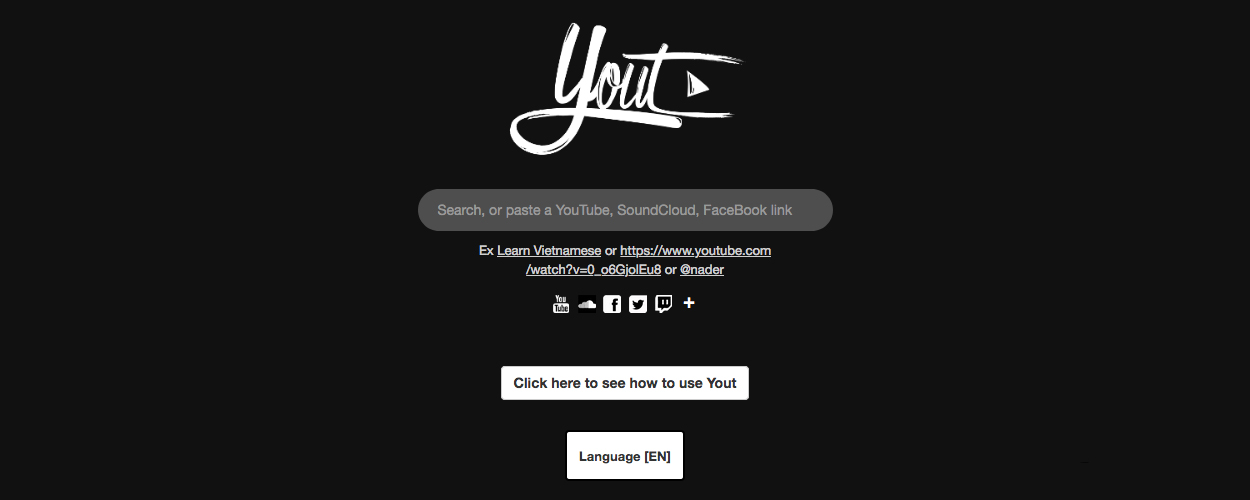This website uses cookies so that we can provide you with the best user experience possible. Cookie information is stored in your browser and performs functions such as recognising you when you return to our website and helping our team to understand which sections of the website you find most interesting and useful.
Business News Digital Labels & Publishers Legal
Yout.com amends its RIAA lawsuit, adds ways in which the labels caused it damage
By Chris Cooke | Published on Friday 18 December 2020

Stream-ripping site Yout.com has filed an amended complaint in its legal battle with the Recording Industry Association Of America. The new legal filing mainly ramps up the claims regarding the negative impact allegedly caused by the record label trade group’s efforts to have Yout.com delisted from Google.
Yout.com sued the RIAA through the courts in Connecticut in October. Obviously, such legal battles usually go the other way round, with stream-ripping services – ie websites that allow people to grab permanent downloads of temporary streams – more commonly being on the receiving end of lawsuits from the record industry, or subject to web-blocking injunctions sought by copyright owners.
Indeed, Yout.com was subject to a web-blocking injunction in Denmark earlier this year, with an organisation called Rights Alliance seeking a court order that would force internet service providers in the country to block access to the stream ripping site. It’s unusual for websites targeted by web-blocks to actually fight them in the courts, though Yout.com founder John Nader did just that in Denmark. Albeit unsuccessfully.
That made it slightly less surprising when he decided to sue the RIAA in the US, even though stream-rippers suing copyright owners isn’t the norm. That lawsuit accused the RIAA of misrepresenting Yout.com when it tried to get the stream-ripping site de-listed from the Google search engine.
The operators of stream-ripping sites usually claim that their technologies don’t actually infringe copyright. Usually said operators employ the same arguments used – mainly unsuccessfully – by the original file-sharing platforms. Which is: we never actually host any copyright infringing files and our technologies have legitimate as well as illegitimate uses.
That said, in its complaint to Google, the RIAA specifically claimed that Yout.com circumvents “YouTube’s rolling cipher, a technical protection measure, that protects our members’ works on YouTube from unauthorised copying [and] downloading”. And that, the trade group argued, violated the US Digital Millennium Copyright Act which “prohibits circumventing a technological protection measure put in place by a copyright owner to control access to a copyrighted work”.
Therefore Yout.com’s RIAA lawsuit mainly disputed those specific claims, stating: “Contrary to defendants’ allegations, Yout’s software platform is not designed to descramble, decrypt, avoid, bypass, remove, deactivate, or impair the YouTube rolling cypher technology. In fact, any digital mechanism in place designed as anti-circumvention technology stops Yout users from recording and saving that protected work, thereby demonstrating Yout’s compliance with any anti-circumvention protections in place”.
The amended lawsuit presents all the same arguments in that domain, but goes into more detail about why the allegedly misleading claims RIAA made to Google caused actual damage to Yout.com. Because, you know, you generally need to prove damage in court if you want some lovely damages. The RIAA’s meddling, it now claims, cost Yout.com subscribers and prevented it from taking future payments.
“Defendants’ DMCA notices have caused Yout’s customers to cancel subscriptions”, the new lawsuit says. Those cancellations occurred because customers received a notice “via Google when searching for ‘yout.com’ that [said] ‘in response to multiple complaints we received under the US Digital Millennium Copyright Act, we have removed two results from this page'”.
And not only that, “On information and belief, defendants’ DMCA notices have caused PayPal to shut down Yout’s account, causing Yout further significant monetary and reputational damage”.
It remains to be seen how the record industry trade group responds to Yout.com’s claims regarding its circumvention – or not – of YouTube’s digital rights management technologies, and its new allegations regarding the damage it suffered because of the RIAA’s notice to Google.





